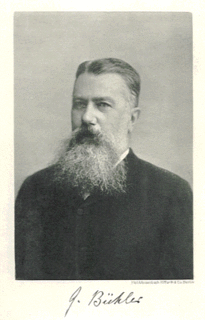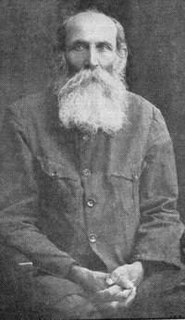A Quote by C. S. Lewis
Nature does not teach. A true philosophy may sometimes validate an experience of nature; an experience of nature cannot validate a philosophy. Nature will not verify any theological or metaphysical proposition (or not in the manner we are now considering); she will help to show what it means.
Related Quotes
Science...has become identified with a philosophy known as materialism or scientific naturalism. This philosophy insists that nature is all there is, or at least the only thing about which we can have any knowledge. It follows that nature had to do its own creating, and that the means of creation must have included any role for God.
The very hope of experimental philosophy, its expectation of constructing the sciences into a true philosophy of nature, is basedon induction, or, if you please, the a priori presumption, that physical causation is universal; that the constitution of nature is written in its actual manifestations, and needs only to be deciphered by experimental and inductive research; that it is not a latent invisible writing, to be brought out by the magic of mental anticipation or metaphysical mediation.
The process of writing can be a powerful tool for self-discovery. Writing demands self-knowledge; it forces the writer to become a student of human nature, to pay attention to his experience, to understand the nature of experience itself. By delving into raw experience and distilling it into a work of art, the writer is engaging in the heart and soul of philosophy - making sense out of life.
In Philosophy, the contemplations of man do either penetrate unto God, or are circumferred to Nature, or are reflected and reverted upon himself. Out of which several inquiries there do arise three knowledges, Divine Philosophy, Natural Philosophy, and Human Philosophy or Humanity. For all things are marked and stamped with this triple character of the power of God, the difference of Nature and the use of Man.
And when you, O human, will return to Nature, that day your eyes will open, you will stare straight into the eyes of Nature and in its mirror you will see your image. You will knowthat when you hid from Nature, you hid from yourselfWe who have been turned away from Nature - if we desire life, we must establish a new relationship with Nature.
In philosophical anthropology, ... where the subject is man in his wholeness, the investigator cannot content himself, as in anthropology as an individual science, with considering man as another part of nature and with ignoring the fact that he, the investigator, is himself a man and experiences this humanity in his inner experience in a way that he simply cannot experience any part of nature.
You may command Nature to the extent only in which you are willing to obey her. You cannot intelligently obey that which you do not comprehend. Therefore I also say, ask of Nature that you may be one with her and she will whisper her secrets to you to the extent in which you are prepared to listen. Seek to be alone much to commune with Nature and be thus inspired by her mighty whisperings within your consciousness. Nature is a most jealous god, for she will not whisper her inspiring revelations to you unless you are absolutely alone with her.
After decades of faithful study, ecologists have begun to fathom hidden likenesses among many interwoven systems. ...a canon of nature's laws, strategies, and principles...
Nature runs on sunlight.
Nature uses only the energy it needs.
Nature fits form to function.
Nature recycles everything.
Nature rewards cooperation.
Nature banks on diversity.
Nature demands local expertise.
Nature curbs excesses from within.
Nature taps the power of limits.
Respecting the environment does not mean considering material or animal nature more important than man. Rather, it means not selfishly considering nature to be at the complete disposal of our own interests, for future generations also have the right to reap its benefits and to exhibit towards nature the same responsible freedom that we claim for ourselves. Nor must we overlook the poor, who are excluded in many cases from the goods of creation destined for all.
Poetry is related to philosophy as experience is related to empirical science. Experience makes us acquainted with the phenomenon in the particular and by means of examples, science embraces the whole of phenomena by means of general conceptions. So poetry seeks to make us acquainted with the Platonic Ideas through the particular and by means of examples. Philosophy aims at teaching, as a whole and in general, the inner nature of things which expresses itself in these. One sees even here that poetry bears more the character of youth, philosophy that of old age.





































